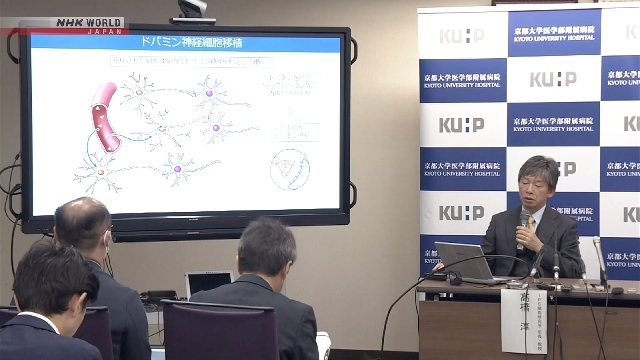A team of researchers at Kyoto University says a clinical trial has shown the safety and efficacy of a treatment for Parkinson’s disease using iPS-derived cells.
The team at the university’s Center for iPS Cell Research and Application, or CiRA, announced the results for seven Parkinson’s patients who took part in the trial. The team is led by Professor Takahashi Jun, who heads CiRA.
Parkinson’s disease is a progressive disorder caused by a loss of dopamine-producing brain cells. Patients gradually lose the ability to move.
An estimated 250,000 people in Japan have the disorder.
In the trial, Takahashi’s team used dopaminergic cells derived from iPS cells, or induced pluripotent stem cells. The cells can be grown into any type of body tissue.
The researchers aimed to improve the patients’ conditions by transplanting the dopamine-producing cells into their brains.
The seven male and female patients, aged between 50 and 69, each received 5 million or 10 million dopaminergic cells.
The team says there were no serious adverse events.
The team monitored and assessed the conditions of six patients over two years, and says it found the transplanted cells produced dopamine in all of them.
The team says motor functions were improved in four of the patients.
A Japanese drug firm, Sumitomo Pharma, cooperated with the trial. It plans to apply to the government for permission to commercially produce the cells.
Professor Takahashi says it is “revolutionary” for researchers that cell transplants can improve patients’ symptoms. He says he hopes to offer the therapy to patients as soon as possible by gaining state approval.


AloJapan.com